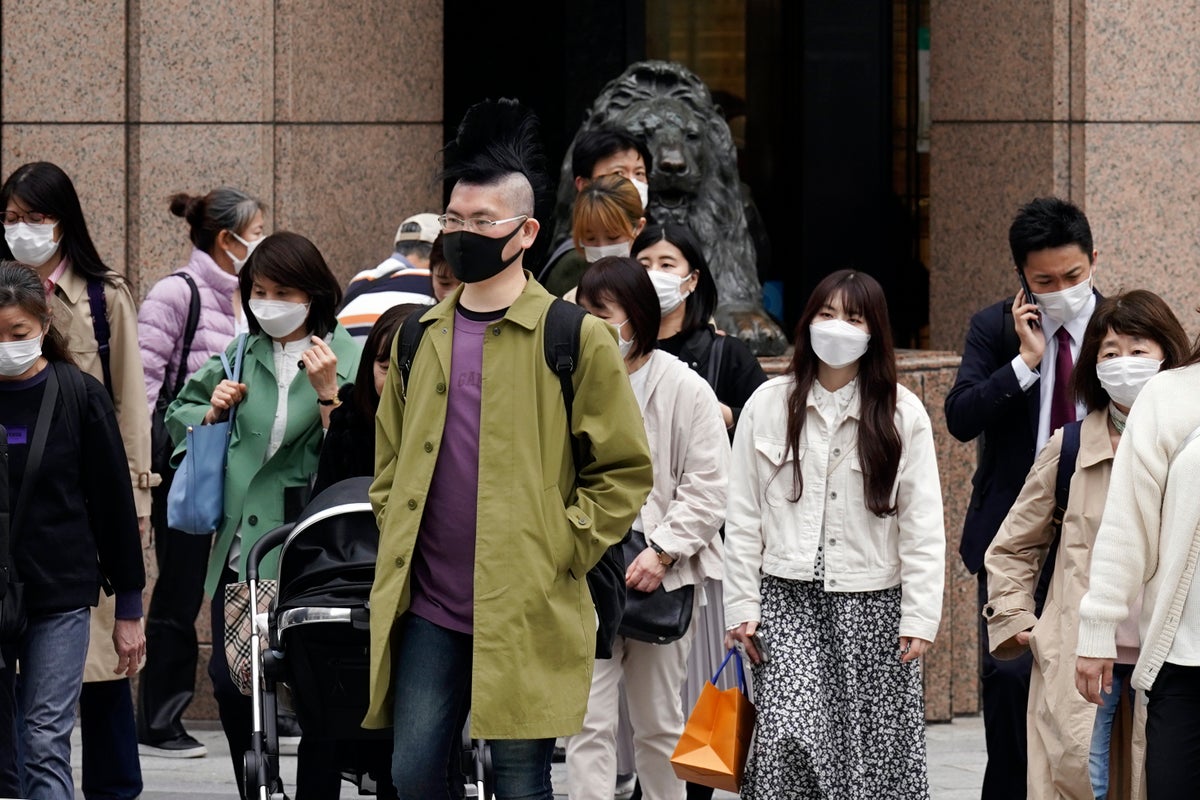
Business sentiment among big Japanese manufacturers worsened in the first quarter of this year in the fifth straight decline, according to a central bank survey released Monday.
The headline measure in the Bank of Japan quarterly survey called “tankan” found such sentiments stood at plus 1, down from plus 7 in December. It’s the worst quarterly result since December 2020.
Sentiments among major non-manufacturers rose one point to plus 20, its the fourth straight quarter of improvement.
The Japanese economy has tended to stagnate in recent years, with slow wage increases, and has recently been hit by inflationary pressures, even as some parts of the nation’s economy continue to experince deflation, the opposite trend in which prices continually decrease.
Uncertainty about global growth is weighing on the export-reliant country. The recent turmoil over the U.S. banking sector is adding to such woes, just at a time when Russia's war in Ukraine has sent energy prices soaring. Japan imports almost all its oil.
The weakening yen boosts the value of overseas earnings by exporters like Toyota and Nintendo, but is proving to be a challenge for rising energy costs.
For the tankan’s projection of sentiments three months later, large manufacturers are expecting an improvement of 2 points at plus 3.
What the Bank of Japan might do on interest rates is being closely watched. The central bank has kept interest rates at zero or in minus territory for years to wrest Japan out of its economic doldrums.
The key interest rate is now at minus 0.1%. The BOJ is targeting stable price rises of 2%.
The new bank governor, Kazuo Ueda, whose nomination received parliamentary approval last month, is set to take office April 9, taking over from Haruhiko Kuroda, Bank of Japan governor for a decade.
Ueda has not indicated he will depart from his predecessor’s positions. But he hails from an academic background, the first such governor in postwar Japan. Most previous governors had held positions in the central bank itself or in Finance Ministry.
Hopes are high Ueda will be able to lead Japan in a steady exit from “Abenomics,” the supereasy monetary policies championed by late Prime Minister Shinzo Abe.
Prime Minister Fumio Kishida is promising to lift people’s incomes and tackle the nation’s shrinking birth rate. He is also seeking to boost defense spending and to restart nuclear power plants to deal with the energy crunch.
Uncertainties like the war in Ukraine and the shortage of computer chips, a vestige of the lockdowns and supply chain troubles from the coronavirus pandemic, have sorely hurt Japan. The nation also needs to nurture new areas of growth to keep up with global competition.







